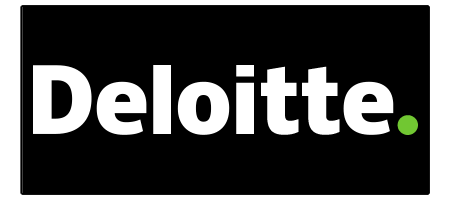Deloitte Interview Questions
All products and services featured are independently selected by WikiJob. When you register or purchase through links on this page, we may earn a commission.
- Deloitte’s Interview Process
- Preparing for Deloitte's Interview Questions
- Deloitte General Interview Questions
empty
empty
empty
empty
empty
- Deloitte Situational Judgement Questions
- Deloitte Competency Questions
empty
empty
empty
empty
empty
- Final Thoughts
In 2019, Deloitte was ranked by Fortune magazine as one of the ‘100 Best Companies to Work For’ and is regularly placed top of the Big Four in management and global consulting, based on its revenue.
Due to Deloitte’s prestige and its attractive graduate scheme, the Deloitte application process for consulting roles is rigorous.
There are many questions designed to test whether you’re a suitable match for the role and culture at Deloitte. In this article, we'll cover them and show you how best to answer them.
Deloitte’s Interview Process
In brief, the Deloitte interview process for the graduate scheme is:
- Online application
- Immersive online assessment
- Job simulation
- Final face-to-face interview
For a detailed breakdown of each stage of the process, have a look at our comprehensive article on the Deloitte application process.
During the process, you will be required to answer lots of different types of questions. We recommend practising all of the types beforehand, so you feel as confident as possible going into the real application process.
These include numerical reasoning questions and verbal reasoning questions
You will also be asked a series of general interview questions, situational judgement questions and competency-based questions.
Preparing for Deloitte's Interview Questions
Because places on the graduate schemes at Deloitte are highly sought-after, it’s crucial that you take the time to prepare properly for the interview process.
This can include answering practice verbal reasoning questions or completing timed numerical reasoning questions, as well as common interview questions. The information in this article will also help you.

Your preparation should also include researching Deloitte thoroughly and making sure you understand the company, the culture, the graduate scheme and the sort of work you will be doing.
You can research the company by visiting its recruitment pages, including the Early Careers Programmes page, which explains what graduate scheme options you have.
The [Life at Deloitte] https://www2.deloitte.com/uk/en/pages/careers/articles/meet-our-people.html?icid=top_life-at-deloitte#-) page will give you a better understanding of what it’s like to work in the organisation.
You can also visit Deloitte’s social media channels to understand what the business is talking about right now, and search online for advice from previous members of the Deloitte graduate scheme.

Prepare for a Deloitte Interview
Deloitte General Interview Questions
Throughout the application process, you will regularly be asked general interview questions related to your experience and your interest in Deloitte.
It’s crucial you give specific examples from your career or education – to demonstrate your skills and values – and make it clear why you are attracted to Deloitte as an employer.
It’s a good idea to consider Deloitte’s values when answering the general interview questions. These are:
- Integrity – preserving its reputation and conducting business responsibly.
- Outstanding value to market and clients – a commitment Deloitte’s employees have made.
- Commitment to each other – a spirit of collaboration and teamwork.
- Strength from cultural diversity.
As with any interview, the general questions are a way for the interviewer to find out more about you and understand whether you are a good fit for the company.
If you can demonstrate that your values are similar to the values of Deloitte, this will be a mark in your favour.
Don’t force your answer – it’s important to still be yourself – but do bear them in mind.
Below are some example questions you may be asked during the Deloitte interview process, with some tips to help you answer each one:
“Why Do You Want to Work for Deloitte?”
It’s very likely you will be asked this question, perhaps phrased as: “Why do you want to work for Deloitte out of all the Big Four companies?”
It’s important you highlight what makes Deloitte different from the other firms. You could mention its market-leading position or the quality of its graduate scheme, for example.
You might also like to mention which of Deloitte’s values is particularly important to you as someone starting their career – for example, its collaborative approach.
“What’s Your Biggest Weakness?”
This is always a difficult question to answer. We recommend picking your weakness carefully and avoiding anything that goes against a Deloitte value, as this will be a warning sign for the interviewer.
For example, saying that you find it hard to work in a team goes against Deloitte’s value of ‘commitment to each other’.
When you describe your greatest weakness, show the interviewer how you are trying to overcome it.
Give a specific answer; so rather than saying “I’m working on it”, tell them what you have done to develop yourself in this area, such as books you’ve read or courses you’ve done.
“Tell Me About Yourself”
This is another hard question and particularly difficult to answer concisely. The interviewer from Deloitte isn’t interested in knowing every small detail about your life.
Instead, pick a few anecodtes that show your interviewer how you fit with the organisation’s values, such as:
- The responsibilities you have and enjoy (integrity)
- The teams you are part of (commitment to teamwork)
- Any travel, cultural activity or international interests you have (diversity)
“Where Do You See Yourself in Five Years?”
In answering this question, think carefully about your ambitions within Deloitte’s industry as well as in your lifestyle.
What are you hoping to achieve by securing a graduate place with Deloitte specifically, instead of any other of the ‘Big Four’ companies?
Deloitte’s values include ‘outstanding value’ and ‘integrity’. The company’s graduate scheme is well remunerated, but the organisation is not looking for someone only interested in making money.
“What Makes You a Good Choice for Deloitte?”
While the Deloitte graduate scheme does give you plenty of experience, opportunities to learn and financial benefits, the organisation expects something in return. Being able to articulate why you will be a good asset to Deloitte is important.
Think about how your skills, experience and personality fit in with the company’s values.
What can you give to the role that no-one else can? What ‘outstanding value’, teamwork skills or diverse knowledge can you bring, for example?
Deloitte Situational Judgement Questions
During the online assessment and job simulation for the Deloitte graduate scheme, you will be required to answer situational judgement questions.
These focus on your ability to make effective decisions in specific work-based contexts that you are likely to encounter if you end up working for Deloitte.
You should answer these questions honestly, as you will be expected to behave similarly if you do get the job.
The Deloitte interview process is unique in that the job simulation is immersive; you will be using a piece of online software that replicates some of the technology and situations you may experience working at Deloitte.
When trying to understand the context in which you will be working and what sort of working behaviours are valued at the company, it is useful to look at Deloitte’s culture.
Here are some of the things the organisation says about its culture:
- “We’re fascinated by the new, the better and the unexpected”
- “Our purpose as a firm is to have impact”
- “We’re business experts as well as technical specialists”
- “Each and every one of us is part of a team”
From a layman’s perspective, this means Deloitte’s culture is collaborative, innovative, results-focused, expert and team-led, with strong leadership and client relationships.
The situational judgement tasks that Deloitte includes in its graduate scheme application can include:
- Multiple-choice questions, where you are required to rank the answers from most to least effective
- Email tasks, where you must choose the most effective answer from a selection
- Composing a communication to a colleague
For example, you may be asked:
“An important client calls you when no-one else is in the office and asks you to shred one of their documents without telling anyone. What do you do?
_A – Do as the client asks
_B – Tell your client you’ll do it, then wait until your supervisor is back and ask for their advice
_C – Tell your client you’ll do it, then shred the document but tell your supervisor
D – Tell your client you’ll call them back, then call your supervisor for advice”
Thinking about Deloitte’s values and culture can help you make an informed choice when faced with these sorts of questions.
For example, while Deloitte prides itself on good client relationships, it also values expertise, integrity and leadership. Therefore, in this example, the most effective answer would be D, as it demonstrates your integrity and collaboration without losing focus on the client.
We recommend that you practise situational judgement questions using online examples.
However, what’s very important for your Deloitte interview is your understanding of the organisation and how it expects its employees to behave, which you can discover through your research of the firm.

Deloitte Competency Questions
Competency questions are an important part of any interview process and the Deloitte interview process is no exception.
Competency questions appear during several stages of the Deloitte process, particularly the final one-on-one interview.
Deloitte lists the key competencies it is looking for in its employees online. Keep these competencies in mind when completing each stage of the graduate scheme application process, and when preparing for your face-to-face interview.
The key competencies, or skills, Deloitte is looking for are:
- Communication
- Commercial awareness
- Career motivation and achievement of goals
- Planning and organisational skills
- Adaptability
- Problem-solving
---
The best way to prepare for competency-based questions is to practice actual questions as much as possible.
Click here to get instant access to (or to learn more about) InterviewGold, the easy online training system for competency interviews. Real questions, winning answers and expert advice.
Prepare for Your Deloitte Interview
During your interview, the senior team member from Deloitte will ask you competency-based questions which require you to provide examples from your career and education that prove your skills in this area.
When answering Deloitte competency questions, it’s crucial that you select examples which effectively showcase your skills in each of the key areas – communication, adaptability, problem-solving and the others.
To prepare for these questions, try to choose a few different events or experiences from your career and education which demonstrate your competency in each area.
For example, for ‘achievement of goals’ you could select how you planned and worked to achieve a high grade in one of your university modules.
For ‘adaptability’, you could select how you adapted to having a new manager in your part-time job.
It can be difficult to answer these sorts of questions concisely, so you may wish to use the STAR technique to help you. This stands for:
- Situation
- Task
- Action
- Result
Giving a couple of sentences for each of the parts of STAR will mean you can communicate a lot of useful information to your interviewer in a short space of time.
The questions below are examples of the sort of competency-based questions Deloitte asks, based on their list of key skills. Each example answer is written in the STAR format.
“Give Me an Example of When You’ve Been Responsible for a Project.”
“In my second year, I was responsible for year-long fundraising for my society. I was tasked with raising £5,000 to fund next year’s activities. I drew up a list of fundraising ideas, put them to the committee and then set up a volunteers' Facebook group where we could share actions and ideas. I organised three events each semester. We successfully raised the funds through our activities and I was asked to continue the activities in my third year.”
“Can You Tell Me About a Time You Demonstrated Leadership?”
“I am currently a bar manager and part of my role is leading the team. Recently, we were asked by head office to improve sales of cocktails. Working with the team, we came up with some new menu and promotion ideas and I set up a scoreboard and prizes for whichever team member could sell the most. The result was that we improved our cocktail sales by more than 100%.”
“Tell Me About an Experience Where You Had to Deal with Someone You Found Difficult to Work with”
“In my voluntary role, I was recently asked to train a new volunteer who was older than me. I found it difficult and frustrating as they didn’t seem to trust me because I was younger and would often do things their way, not the charity’s way. I spoke to my team leader to understand how I could change things and sat down with the new volunteer to explain the reasons behind our processes. I also explained how important it was for me to be able to work with them effectively and asked them how I could help them in their role more. This helped ease the problems and the trainee volunteer saw me and the processes in a different light.”
“Please Provide an Example of a Challenge You’ve Faced and Overcome When Working in a Team”
“At university, we often did group work and a challenge that I regularly faced was miscommunication in the team, either from other people or from me. Once, we were asked to create a presentation and despite having meetings about it, we miscommunicated and missed out an essential part. This taught me the importance of communication and, in the next group project I did, I drew up a document which explained each person’s role and what they needed to do so it was really clear.”
“What’s the Biggest Obstacle You’ve Overcome in Your Professional Life?”
“Working part-time while continuing my university studies was difficult as I often had lots of different projects happening at the same time. This was particularly tough in my third year when I was writing my dissertation. To juggle all the projects, I developed my time management skills and created a colour-coded calendar to show me when I was working, when I was in class and when I needed to be researching or writing. Having this, helped me feel more in control and made the process less stressful – and I got a great mark for my dissertation.”
Prepare for a Deloitte Interview
Final Thoughts
Deloitte is a world-renowned organisation whose graduate scheme is highly competitive; understandably, the Deloitte job interview and application process is rigorous.
It’s important to practise the different types of questions you are likely to be asked throughout the process, including situational judgement questions, competency-based questions and more general interview questions.
However, what’s crucial is that you spend time researching Deloitte, the range of graduate programmes, the organisation’s culture, its values and the role itself.
The recruitment team at Deloitte want to make sure you are the best fit for the company and that you’ll be able to bring something to the role, so knowing what they are looking for is vital.



